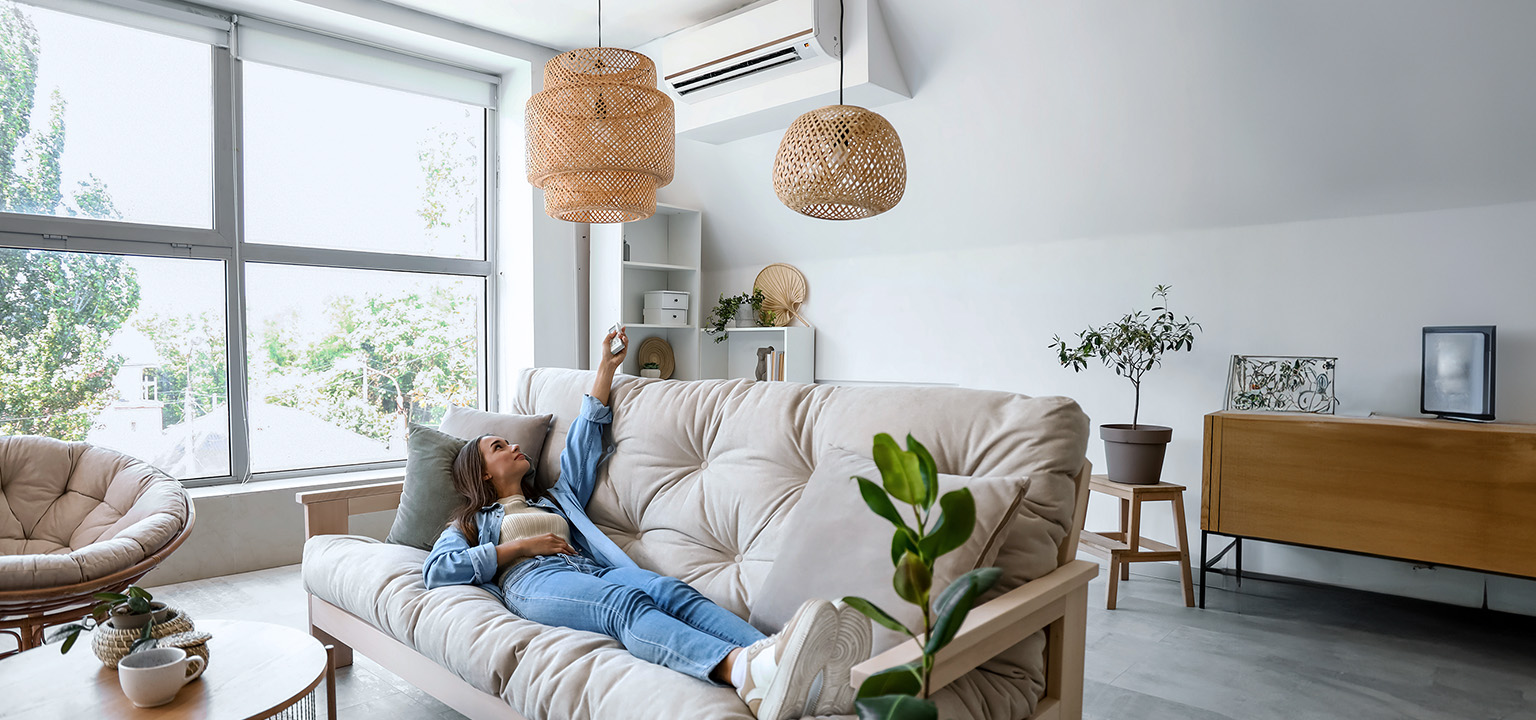
Could you heat your home with air conditioning?
A fixed air conditioner is actually an air-to-air heat pump that can quickly heat and cool your home. Ideal for both the summer and winter months. However, you can’t install an air conditioner in every house or flat.
Find out how to assess whether your home is suitable for an air-to-air heat pump below.
Do you live in a house?
Living in a house means you have more freedom to install a fixed air conditioner as you don't have to consider co-owners or space constraints. Nonetheless, it’s important to start by checking whether your home is ready for an air-to-air heat pump.
1. How well-insulated is your home?
Your insulation determines how much heat is lost. The better your insulation, the less work your air conditioning has to do and the lower your energy bills will be.
- If you have roof, wall and floor insulation, then you’re already doing well.
- Even if only your roof or walls are insulated, that’s usually enough to install air conditioning.
- If you still have single glazing, you should replace it with high-efficiency glass or triple glazing.
2. What is your home’s heat demand?
By this we mean how much energy your home needs to feel comfortably warm:
- Less than 70 W/m²: your home doesn’t need much heating. This makes a fixed air conditioner a good choice.
- Between 70 and 105 W/m²: your home needs slightly more energy to heat, so you should combine the unit with another heating system.
- More than 105 W/m²: your home loses a lot of heat. It would be better to invest in insulation first.
You can estimate your home’s heat demand based on when it was built and its insulation. We’ve already done the calculation for you, though you should keep in mind that these figures are only rough estimates.
| Type of property | Heat demand (kW/m2) |
| Energy-efficient new build | 0.04 kW/m2 |
| Property with standard insulation | 0.08 kW/m2 |
| Old property without insulation | 0.12 kW/m2 |
Multiply the heat demand by the area of your home to find out how much energy you need to heat your home. A 170 m² detached house with good insulation has a heat demand of approx:
170 m² × 0.08 kW/m² = 13.6 kW.
For a new-build property of the same size, this is around 6.8 kW.
3. What is your current heating system?
- If you have underfloor heating or large radiators, your system is compatible with air conditioning.
- If you have an old system with small radiators, your air conditioning unit would have to work too hard and you wouldn’t get much benefit from it.
4. What about your electricity consumption?
Air conditioners run on electricity, so when you use multiple units at once, it can send your energy consumption skyrocketing. You should therefore consider installing solar panels or a home battery, as these can make you less dependent on the grid and reduce your energy costs.
Do you live in a flat?
It’s slightly more difficult to install air conditioning in a flat. There are additional aspects to bear in mind, especially if the building is co-managed.
1. Does your building share a heating system?
- If you have your own heating system, you are usually free to decide whether to install air conditioning, though your home does need to be sufficiently insulated.
- If everyone in your building uses the same heating system, you should consult with the property managing agent or co-owners first. This decision will often depend upon the state of the least well-insulated flat.
2. Can you install an outdoor unit?
Flats usually have limited options when it comes to installing an outdoor unit. You have to consider rules concerning the building façade, noise pollution and the exterior appearance. Be sure to start by checking with your property managing agent or municipality about the applicable conditions.
3. Is your electrical installation in order?
In older apartment buildings, the electrical installation is not always robust enough for air conditioning, so you should arrange to have it inspected before taking action. If you fail to do so, you run the risk of power failure or even fire.
4. Be considerate of your neighbours
Air conditioning makes noise, especially the outdoor unit. You should therefore opt for a silent installation and make sure you don't hang the unit too close to your neighbour's terrace or window.
Ready to install air conditioning?
If you’re planning to install an air conditioner and want to know approximately how much it will cost, request a no-obligation quote from ‘Impact us today’ using KBC Mobile. If you need to get your home insulated or install new windows first, you can easily calculate your renovation costs with Setle.